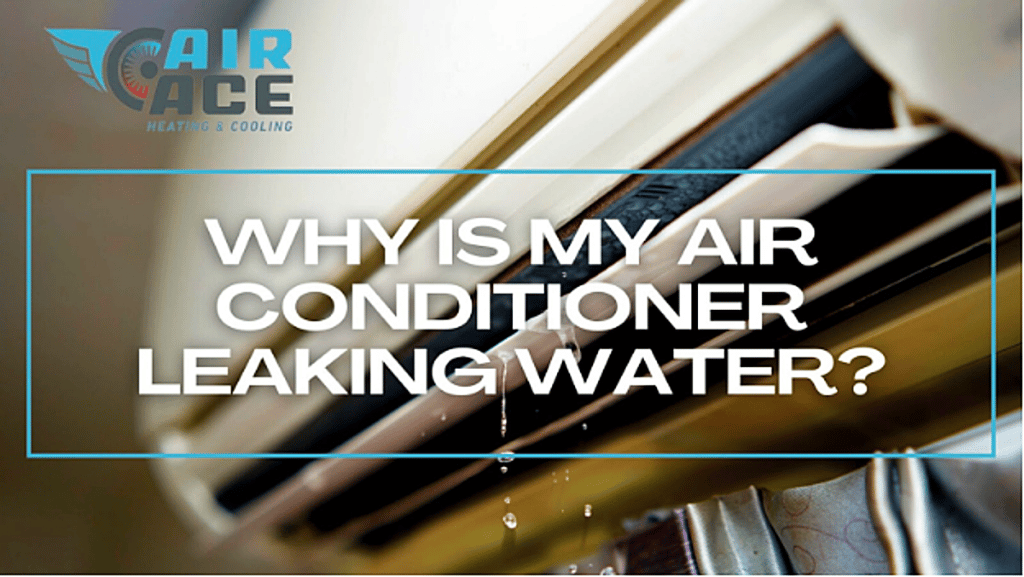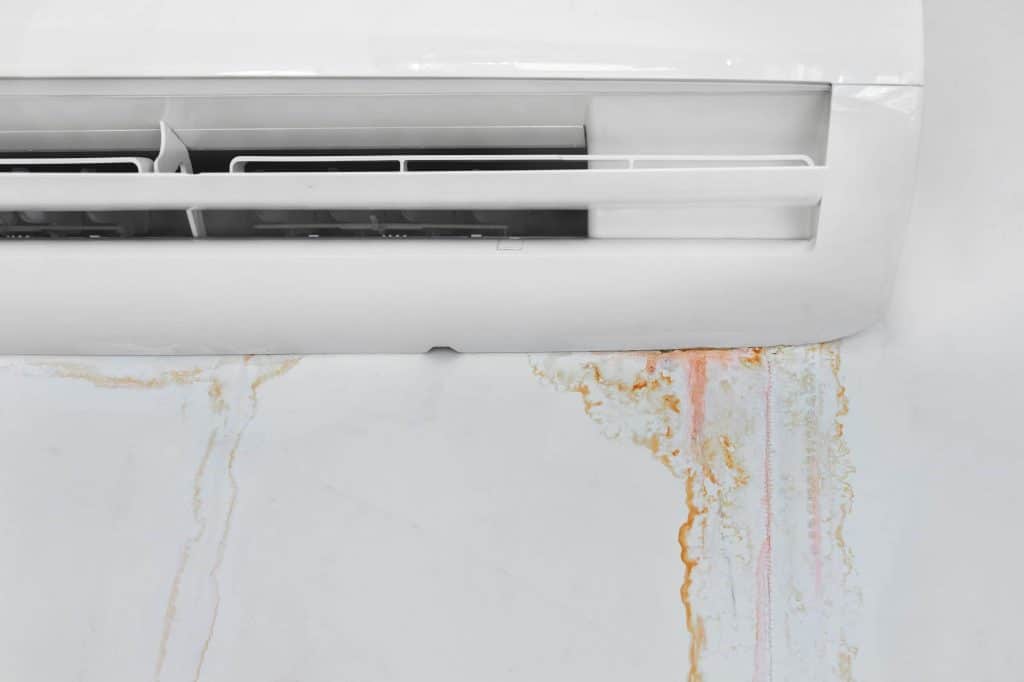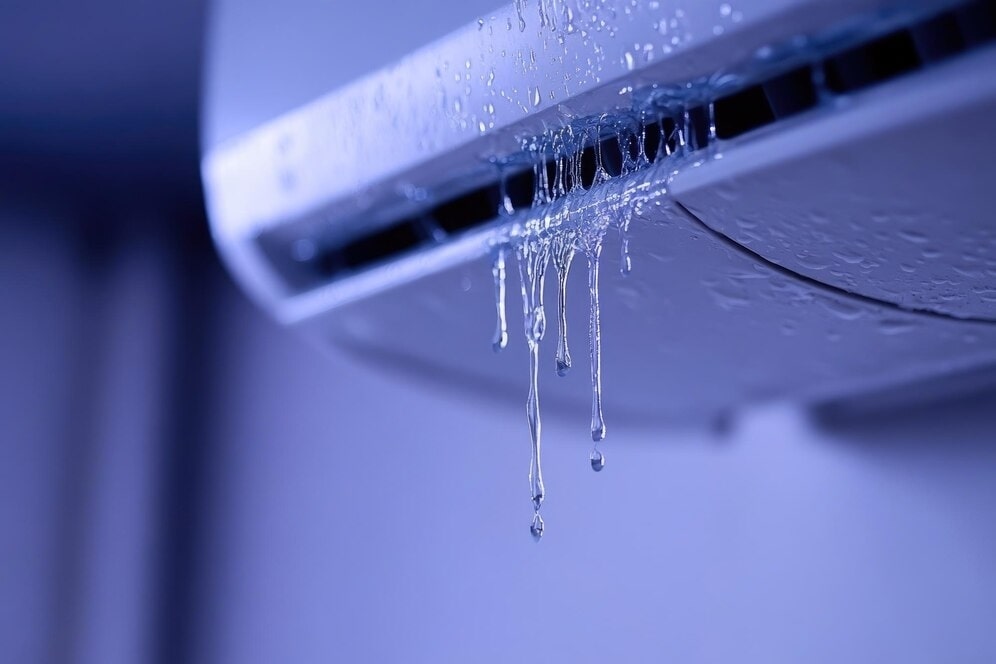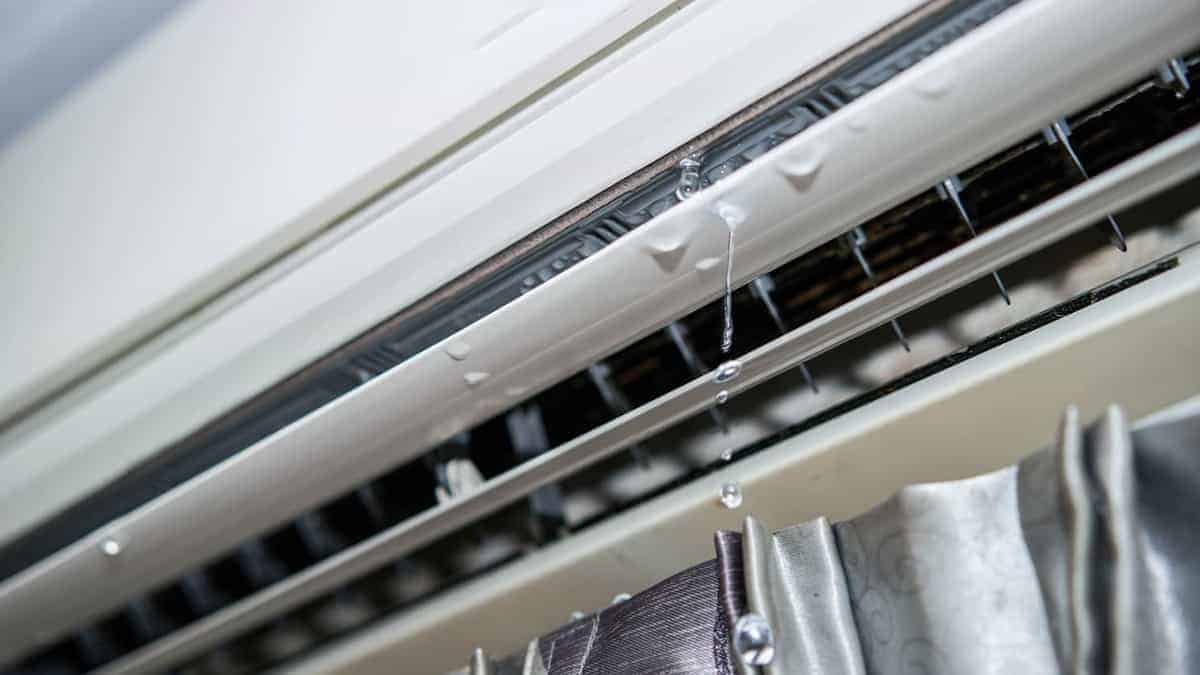Why Is My Central Air Unit Leaking Water
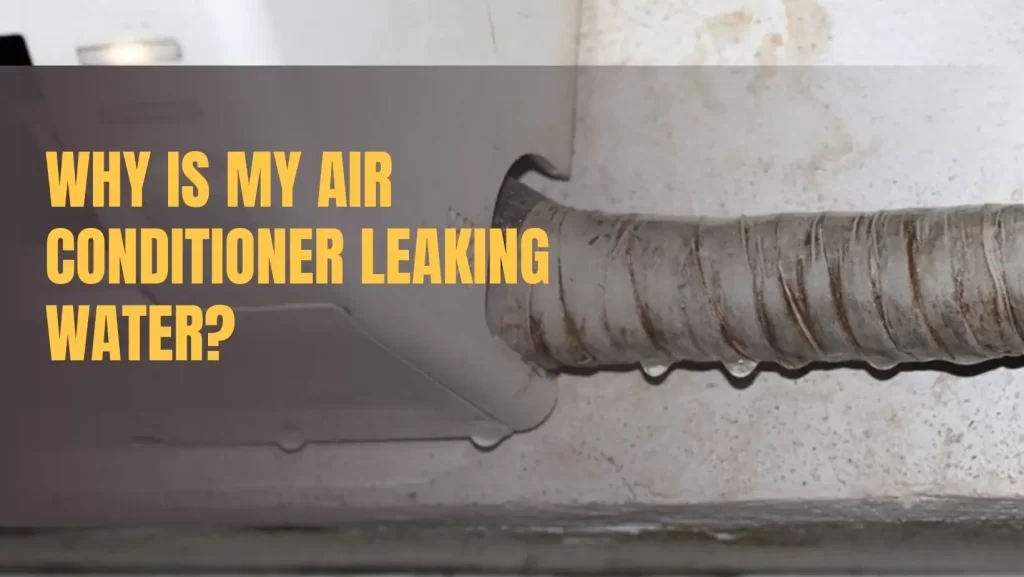
Why Is My Central Air Unit Leaking Water? A Homeowner's Guide
Discovering a puddle of water near your central air conditioning unit can be alarming. Before you panic about expensive repairs, know that some water is normal, while other leaks indicate a problem you can potentially fix yourself. This guide will walk you through the common causes of a leaking AC unit, provide troubleshooting steps, and help you decide when it's time to call a professional HVAC technician.
Understanding Normal Condensation
Central air conditioners work by cooling the air that passes over the evaporator coil. This coil gets very cold, causing moisture in the air to condense on its surface, much like a cold glass of water on a hot day. This condensation is collected in a drain pan and then flows through a condensate drain line to the outside or a floor drain. A small amount of water near your outdoor unit is often normal condensation, especially on humid days.
Identifying the Source of the Leak
The first step is to determine where the water is coming from. Is it near the indoor unit (usually in your attic, basement, or closet) or the outdoor unit (the condenser)? This distinction is crucial because it points to different potential problems.
Indoor AC Unit Leaking Water
Leaks near the indoor unit are more common and often easier to address. Here are the primary suspects:
Clogged Condensate Drain Line
This is the most frequent cause of indoor AC leaks. Algae, mold, dust, and other debris can accumulate inside the drain line, creating a blockage. This prevents water from flowing freely, causing it to back up into the drain pan and eventually overflow.
Tools you might need:
- Wet/dry vacuum
- Stiff wire or pipe cleaner
- Bleach or vinegar
- Bucket
How to unclog the drain line:
- Locate the drain line: It's usually a PVC pipe exiting the indoor unit.
- Turn off the AC: Always disconnect power to the unit before working on it.
- Vacuum the drain line: Attach the wet/dry vacuum to the end of the drain line outside or at the access point near the unit. Seal the connection as best you can and run the vacuum for several minutes to suck out any debris.
- Flush the drain line: Pour a cup of diluted bleach or vinegar down the drain line to kill algae and mold. Let it sit for 30 minutes, then flush with water.
- Use a wire or pipe cleaner: If vacuuming doesn't work, gently insert a stiff wire or pipe cleaner into the drain line to break up any clogs. Be careful not to puncture the pipe.
- Test the drain: Pour water into the drain pan to see if it drains properly. Repeat the steps if necessary.
Cracked or Rusted Drain Pan
Over time, the drain pan can corrode or crack, leading to leaks. This is more common in older units.
Possible solutions:
- Patching: Small cracks can sometimes be patched with epoxy or sealant specifically designed for plastics.
- Replacement: If the drain pan is severely damaged, it will need to be replaced. This is a more complex repair and may require a professional.
When to call a professional: If you're uncomfortable working with sealants or unsure how to properly remove and replace the drain pan, it's best to contact an HVAC technician.
Frozen Evaporator Coil
A frozen evaporator coil can also cause leaks. When the ice melts, it can overwhelm the drain pan.
Common causes of a frozen evaporator coil:
- Restricted airflow: A dirty air filter is the most common culprit.
- Low refrigerant: A refrigerant leak can cause the coil to freeze.
- Faulty blower motor: If the blower motor isn't working properly, it won't circulate enough air over the coil.
Troubleshooting a frozen coil:
- Check the air filter: Replace a dirty air filter with a new one.
- Turn off the AC: Turn off the AC and allow the coil to thaw completely. This may take several hours.
- Check the blower motor: Ensure the blower motor is running properly. If it's not, you may need to call a professional.
- Call a professional: If the coil freezes again after thawing and replacing the air filter, you likely have a refrigerant leak or another serious problem that requires professional attention.
Important: Do not attempt to add refrigerant yourself. Handling refrigerant requires specialized equipment and knowledge.
Outdoor AC Unit Leaking Water
Some water around the outdoor unit is normal condensation. However, excessive leaking could indicate a problem.
Normal Condensation vs. a Leak
On humid days, your outdoor unit will produce a significant amount of condensation. This is normal. However, if you see water coming from places other than the designated drain, or if the amount of water seems excessive even on a dry day, it could be a sign of a problem.
Refrigerant Leaks
While not directly causing water leaks, refrigerant leaks can sometimes lead to ice buildup on the coils, which then melts and appears as a leak. However, refrigerant leaks are often detected by other indicators like poor cooling performance.
Drain Line Issues (Rare for Outdoor Units)
While less common, the outdoor unit can also have a drain line. If this line becomes clogged, it can cause water to back up and leak.
Troubleshooting: Follow the same steps as for unclogging the indoor drain line, but be aware that outdoor drain lines are less common.
DIY vs. Professional Help: When to Call an HVAC Technician
You can handle many of the simpler issues, like unclogging a drain line or replacing an air filter. However, some problems require the expertise of a qualified HVAC technician. Here's a guide:
DIY-Friendly Tasks:
- Unclogging the condensate drain line
- Replacing the air filter
- Checking for obvious signs of damage (e.g., loose connections)
When to Call a Professional:
- Refrigerant leaks
- Frozen evaporator coil that persists after changing the air filter
- Faulty blower motor
- Cracked or rusted drain pan requiring replacement
- Electrical problems
- You're uncomfortable working with electrical components or refrigerant
Estimated Repair Costs
The cost of repairing a leaking AC unit can vary depending on the cause of the leak and the complexity of the repair. Here are some rough estimates:
- Unclogging a drain line: $75 - $200 (if done by a professional)
- Replacing a drain pan: $200 - $600
- Refrigerant leak repair: $200 - $1000+ (depending on the severity and location of the leak)
- Blower motor replacement: $200 - $800
Note: These are just estimates. The actual cost may vary depending on your location, the HVAC technician's rates, and the specific circumstances of your situation. Always get a quote from a qualified technician before authorizing any repairs.
Preventative Maintenance Tips
Preventing leaks is always better than dealing with them. Here are some preventative maintenance tips to keep your AC unit running smoothly:
- Change your air filter regularly: At least every 1-3 months, or more often if you have pets or allergies.
- Schedule annual HVAC maintenance: A professional can inspect your unit for potential problems and perform necessary maintenance, such as cleaning the coils and checking refrigerant levels.
- Periodically flush the condensate drain line: Pour a cup of diluted bleach or vinegar down the drain line every few months to prevent clogs.
- Keep the area around the outdoor unit clear: Remove any debris, such as leaves, grass clippings, and shrubs, to ensure proper airflow.
By understanding the common causes of AC leaks and following these troubleshooting and preventative maintenance tips, you can keep your central air conditioning system running efficiently and avoid costly repairs. Remember, when in doubt, always consult with a qualified HVAC professional.
